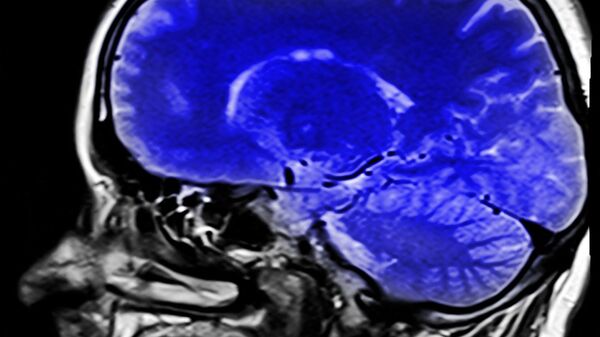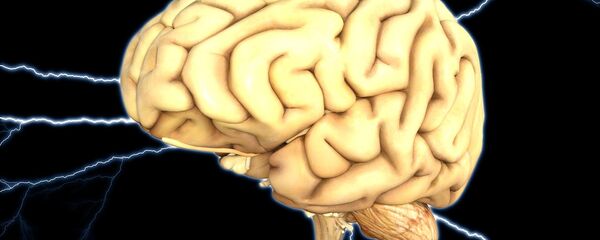Sputnik discussed the discovery with Gabor Tamas, professor of neuroscience at the University of Szeged‘s Department of Physiology, Anatomy and Neuroscience.
Sputnik: How have you made the discovery?
Having these samples, we were in a position to identify emerging subtypes; emerging meaning what we haven’t seen in other species.
Sputnik: Why was this type of brain cell not spotted before?
Gabor Tamas: The simplest answer is quite possibly because no one else looked at human brains before at the detail we applied in the last couple of years.
Sputnik: Can you tell us what exactly these ‘rosehip neurons’ do?
Gabor Tamas: Neurons communicate with each other via so-called synapses, which are contact sides between neurons. The position of these contacts is crucial in communication.
For example, in case someone talks to you not loudly, but you understand that because someone talks into your ear; if that same person lies down next to you and does the same thing next to your feet, you wouldn’t hear a thing. This is exactly what is happening with this novel cell type. It actually chooses a part of the target cells very carefully, where these target cells can really listen and that makes a lot of difference.
Gabor Tamas: That’s a big question for the next 5 to 10 years.
Having identified this new cell type, which we haven’t seen in rodents or even in any other species we have looked at, actually creates an opportunity to study functions which belong to us humans and don’t belong to any other animal species. The next step in our research will definitely be to study material samples from patients suffering from particular diseases and to look for particular functions of this particular cell type in those diseases.
Sputnik: Could these rosehip cells be linked to understanding how some brain diseases or malfunctions work?
Gabor Tamas: Basically, one of the most common methods of studying a brain disease is to look for genetic fingerprints of that particular disease in relation to controls, meaning healthy individuals. In case we study these emerging cells, including the rosehip cells, having this in mind, looking for those particular marker-genes of a disease, which could be enriched in this particular cell type, then we are in business in discovering the background of that particular disease.
The reason for finding a new cell type in a human is that many human neuropsychiatric diseases simply don’t exist in any other species. Our diseases are specific to us; we cannot have the same disease in a different brain, like in a mouse brain; their diseases aren’t the same as in the human brain.
Gabor Tamas: What I can certainly tell you is that this cell type does actually reside in those areas, mostly the frontal areas of our brain. This cell type is not specific to those parts of our brain which are responsible for consciousness, but we don’t know a single cell type which would be residing only in those areas.
Basically, our brain is very flexible and the same circuitry of our brain can be responsible for consciousness, movements or any other function using a little tuning of the very same neuronal circuitry.
Views and opinions expressed in this article are those of Gabor Tamas and do not necessarily reflect those of Sputnik.






